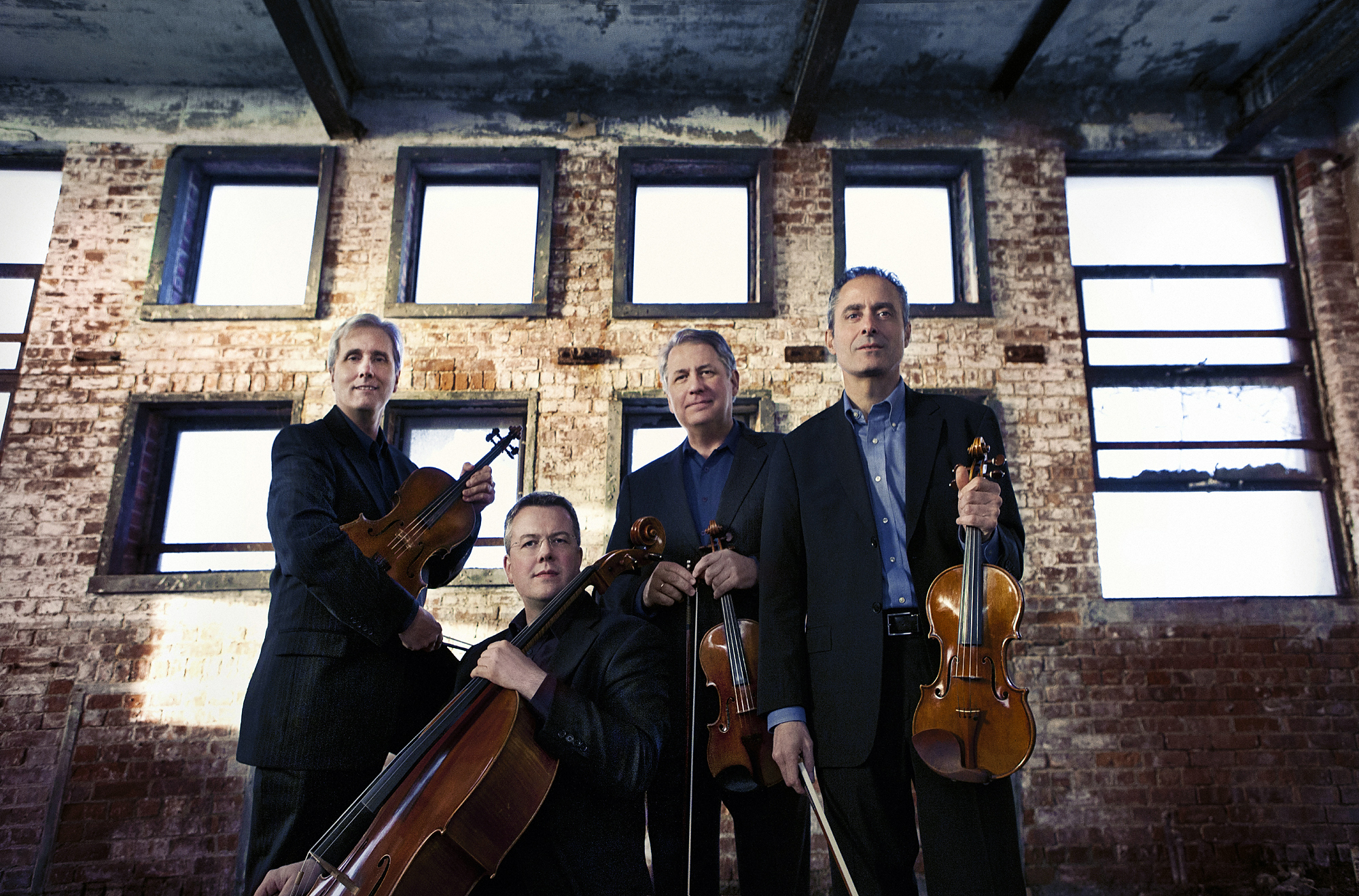For musicians, the rewards of bringing a new piece into the world have to be reconciled with the extra rehearsal time it will take to learn it from scratch—which can be a challenge if you’re a chamber ensemble as busy as the Emerson String Quartet. Curious about the effort required to midwife Lowell Lieberman’s String Quartet no. 5—which they premiered in September and will play here Tuesday—I corresponded with ESQ violinist Eugene Drucker.
Liebermann delivered the work (meeting the requested deadline) early last summer, and the ESQ members began individual study: “We all have to prepare before the first rehearsal of any piece, particularly a contemporary work that nobody has played before,” Drucker says. “I’d estimate that I spent two or three hours practicing [the quartet], putting in bowings and fingerings, before we first rehearsed it,” which was in July. From there, how long did it take to get it performance-ready? “In general this quartet is somewhat easier than many that we have premiered,” Drucker says, though one fugal passage in 5/16 meter proved “tricky to organize in the early stages . . . I would guess that we needed a total of eight to 10 hours.” Just a few of those were spent with the composer, “about three weeks before the premiere,” Drucker says. Tempos were the main issue: “Some of the fast sections seemed either unplayably fast or at least unrealistic in terms of projecting the lines with clarity in a concert hall, and Mr. Liebermann was very flexible about modifying [his metronome marks] . . . In discussing each section of the piece with him, we gained a greater understanding of the atmosphere he wanted, and of which lines should stand out in relief from the overall texture.”
This was the ESQ’s first encounter with the music of Liebermann, one of today’s busiest and most-often-performed composers, and Drucker admires the quartet’s “mysterious atmosphere, lyricism, rhythmic energy, and contrapuntal treatment of material. There is a perceptible narrative arc, a sense of having come full circle by the time the opening material is evoked . . . Judging from the many comments I have received, audiences seem to find the work accessible, meaningful, and moving. That is no small achievement in today’s varied musical landscape.” Meany Hall, UW campus, 543-4880, uwworldseries.org. $40–$45. 7:30 p.m. Tues., April 21.





